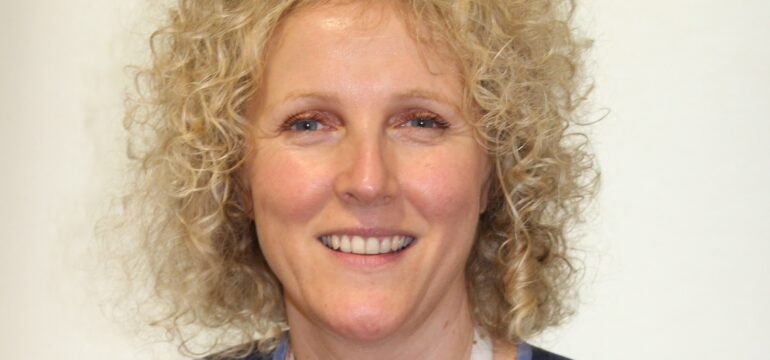By Debbie Jones, Hospice in your Care Home Manager

Research shows that the end of life experiences of people with a learning disability are marked by inequality.
A seminal report ‘Death by Indifference’ was released by charity Mencap in 2007 and sadly the follow up report five years later showed that little had changed. There was still inappropriate knowledge of the Mental Capacity Act, delays in diagnosis and treatment, as well as poor pain management. The report found support for the dying person, and their families, should be better coordinated, and people with a learning disability were less likely to have access to specialist palliative care.
In addition, hospice, palliative and end of life care professionals reported limited contact with people with learning disabilities and a lack of confidence in working with this group and understanding their needs.
Challenges for service providers
These earlier reports were followed by further national guidance, such as recommendations from NHS England in 2017, which highlighted a range of challenges for service providers to overcome, including communication barriers, lack of planning for future care, and how symptoms can often be overshadowed by existing conditions. These challenges are felt to be strongly linked to the delays in diagnoses of a life-limiting condition and can often lead to a poorer quality of life for that person in the last few days and weeks of their life.
Also well documented is the fact that families and those people important to the person are often unaware of how to access palliative and end of life support.
The LeDer programme
The LeDer programme is a national improvement programme set up to look at why people with a learning disability are dying early and what can be done to change services and reduce inequalities.
As a borough we are using key themes from our local LeDer review, to ensure we are actively identifying areas of improvement, whilst promoting dignified end of life care for anyone with a learning disability.
Learning disability team
As a hospice service Hospice in your Care Home has been working in partnership with the learning disability team from Wrightington, Wigan and Leigh NHS Foundation Trust since early 2021, to meet the needs of people with a learning disability, who are in the last year of life.
This initiative has seen regular meetings between both teams to identify deteriorating patients, palliative and end of life care education delivered by the hospice to the learning disability staff and face-to-face support and role modelling at the time of need from the hospice. A key objective is to ensure that people with limited communication, are supported to remain in the place of their choice, with staff that are familiar to them, avoiding unnecessary hospital admissions where possible.
As with all the education and training we deliver, our focus is always to consider the impact of the situation on the patient, families and carers, and to use sensitive communication and good assessment skills to ensure the ‘whole person’ is considered and not just the physical problems they may be experiencing. We teach about spirituality, promoting dignity and ensuring comfort measures. We emphasise that for someone with a learning disability, we may need to use nonverbal communication to establish their needs.
Supporting a resident
During October and November 2021, we worked closely with the learning disability team to support a man with downs syndrome, who had been diagnosed with a life-limiting illness. Initially the care staff looking after him at home were anxious about the situation; they felt apprehensive about how he might deteriorate and what help and advice they would receive. It was clear that the gentleman wanted to stay at home and had a trusting positive relationship with his carers.
The staff were very keen to access training and we quickly organised some bespoke training for six of the permanent staff, to increase their confidence and knowledge about what to expect in the coming weeks. This was followed up by regular support visits from one of the learning disability nurses and our team who worked with the staff to role model good end of life practice, such as how to keep the mouth clean and moist.
Telephone advice was provided, and staff had a clear plan of care. In the end the gentleman died in the place he wanted to be with staff trained to meet his needs.